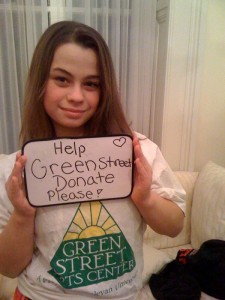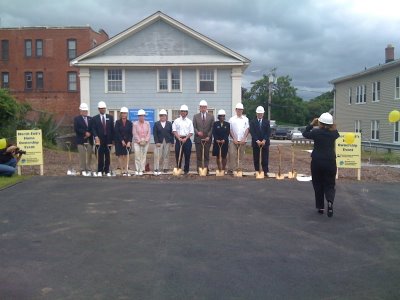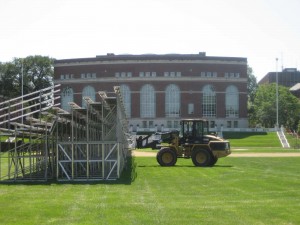I noticed on the calendar today that this week there are some “Pre-Select Interviews” for students planning to apply to Teach for America this year. Teach for America was a popular choice for Wes grads even before other jobs after graduation became so scarce, and it continues to attract some of our most thoughtful and engaged students. For many years, Wesleyan has contributed a disproportionate share of teachers to schools at all levels, and our Graduate Liberal Studies program has provided hundreds of teachers in central Connecticut with advanced degrees. There is currently a task force of faculty and administrators investigating whether we should re-start a program of study for undergraduates intending to pursue careers in education. We certainly need new ideas for improving our schools — and a better understanding of how our education system now reproduces inequality rather than offering an escape from it.
Wesleyan faculty are celebrated for their devotion to their students, and some have been recognized nationally for their extraordinary work in the classroom. I’m thinking of Richie Adelstein in Economics and Andy Szegedy-Maszak in Classics. And I’m thinking of a film prof of whom Joss Whedon said, “I’ve had two great teachers in my life — one was my mother, the other was Jeanine Basinger.” Not every prof gets to see things like that in print, but we all take pride in them.
I’d like to think that one of the core reasons so many of our students go on to careers in education is that they are inspired by the energy and dedication of their teachers at Wesleyan. Whether they are studying computational biology or ethnomusicology, postmodern Christian thought or microeconomics, our students are enlivened by the work of their professors. And as their teachers, we are enlivened by the creativity, inquisitiveness and intellectual verve of our students. My colleagues tell me that I’m happiest just after I come back from the classroom. Now as our fall term comes to an end, I’m already beginning to wonder who will be in my spring course…
Emerson wrote that colleges “serve us when they aim not to drill, but to create; when they gather from far every ray of various genius to their hospitable halls, and by the concentrated fires, set the hearts of their youth on flame.” That’s why we teach. To see those fires and to feel their warmth.





